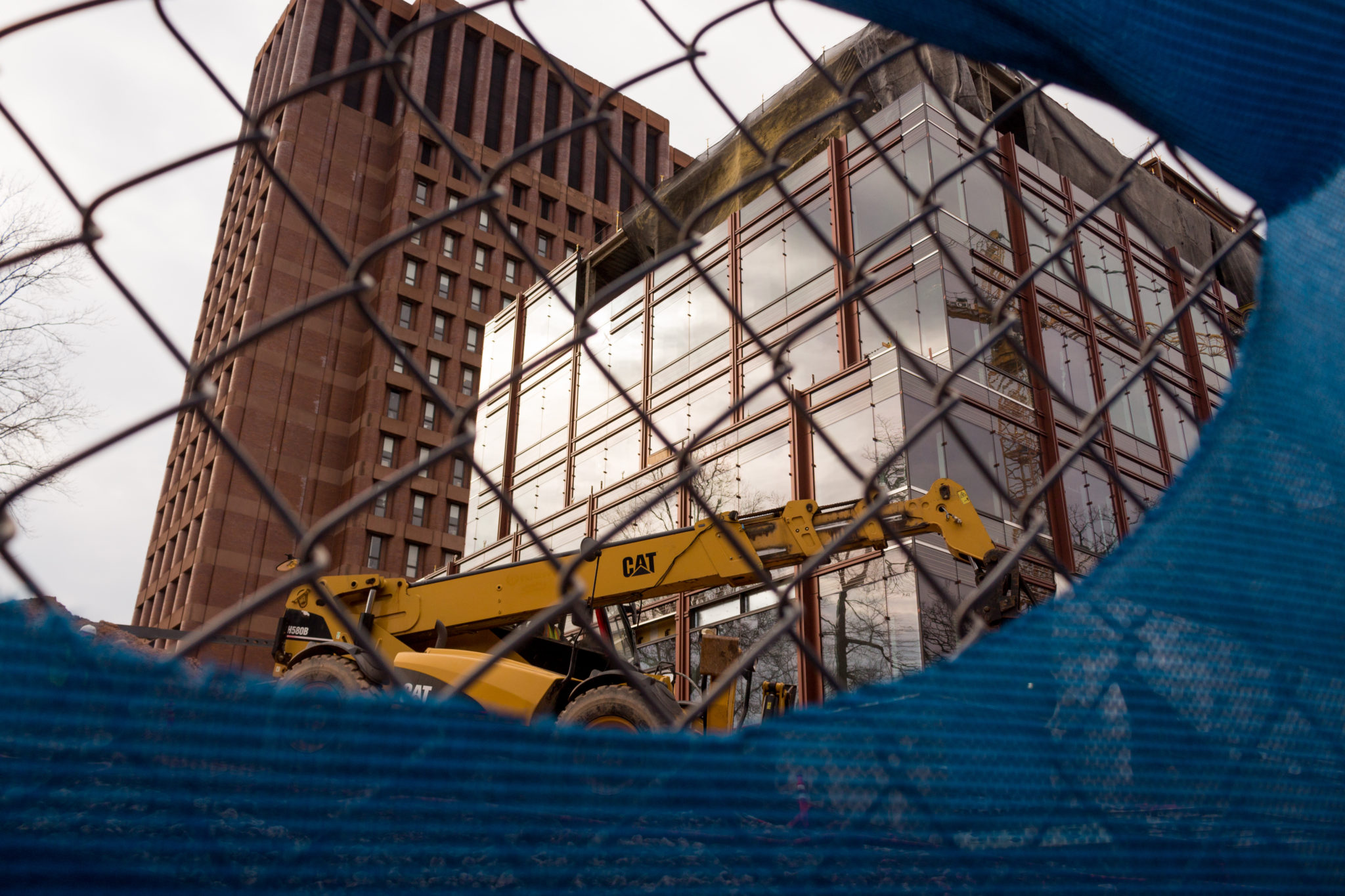
Daniel Zhao
University Provost Scott Strobel announced on Wednesday that University researchers should suspend all non-critical laboratory work by last Friday at the lastest due to the novel coronavirus outbreak.
Strobel’s announcement followed up on a prior University directive that principal investigators evaluate their work and decide if it was critical enough to warrant a continued presence in the lab. But on Wednesday, the Provost clarified that “no trainee should be required, explicitly or implicitly, to work in the laboratory” and told scientists to work remotely, unless undertaking “critical research functions.” Essential research, as defined by a Faculty of Arts and Sciences email to researchers, includes laboratory work directly involved with fighting the outbreak and critical maintenance.
Yale School of Medicine Professor Michael Nitabach said that Strobel’s new mandate is “obviously the appropriate thing to do, despite the fact that it will surely delay career progression for many students and postdocs.”
“In my view, [Yale] is now doing what it should be in this emergent circumstance,” he wrote in an email to the News. “What it should do in the long-term to ameliorate the effects of this situation on career progression and prospects of its faculty, students, and post-docs is another question, and much remains to be seen.”
Before the updated guidelines were announced, Nitabach joined colleagues in criticizing the prior instructions, which came amid rapid University changes and a move to online classes. Nitabach called a former announcement “disastrously tone-deaf” because it gave principal investigators power to decide if their postdocs must work in the lab — a power dynamic he said was “structurally impossible” to make equitable.
Early last Tuesday afternoon, members of the Yale Postdoctoral Association and other postdocs sent a letter to the Office of Postdoctoral Affairs Faculty Director Elias Lolis urging for clearer guidelines and criticizing the University’s prior communications as “confusing, equivocal, and delayed.” While Strobel did not reference this letter in his Wednesday update, YPA representatives told the News that they see this change as a victory.
“I think this is the guidance we needed, and the appropriate steps are now being taken,” wrote Sean Edington, a chemistry postdoctoral associate who coordinates the YPA’s Advisory Committee, in an email to the News.
The mandate has effectively shut down lab work across campus — including that of Richard Bucala ’79 GRD ’79, Chief of Rheumatology, Allergy & Immunology and Rheumatologist in Chief at Yale New Haven Health. He said the University made the right decision in shutting down his Immunology laboratory at the Yale School of Medicine, adding that continuing its operations would be “extremely disruptive and costly.”
“It is an extraordinary circumstance, unprecedented in human history,” Bucala said. “There’s nothing more important than human health. We all work very hard. We’re all very professional, but this dedication should never jeopardize your health or the health of your family.”
Bucala also emphasized the importance of shutting down labs in order to protect staff and materials, explaining that the virus could negatively affect workers and subjects. In his own lab, there are engineered mice and cell lines, for instance, which took a lot of time and effort to create and are now at risk of being lost due to the current health emergency.
According to Strobel’s announcement, research animals will be cared for through the Yale Animal Resources Center, which is set to stay open through the outbreak.
When asked about the Yale School of Medicine’s communication with researchers before Strobel’s Wednesday announcement, Bucala said that it “was to some degree subject to interpretation.” Still, he says he is sympathetic to the challenges facing the Yale School of Medicine’s administration as it communicates changes amid a volatile situation.
“By the end of last week, in the Department of Medicine, we knew that laboratories would have to shut down,” Bucala said. “We knew that laboratories would have to ramp down their activities to potentially zero, and the building would have to close and be empty of personnel.”
It remains to be seen how Yale’s efforts will impact research and the career paths of University scientists. Strobel recently announced that the University will alter tenure clocks to adjust for lost research time.
Strobel and other administrators encouraged at-home researchers to continue working on projects that do not require laboratory equipment.
Nitabach’s lab — which deals with the basic biology of neural circuitry, a field far from coronavirus research — has terminated all “ongoing experimental plans” and has sent everyone home, the professor wrote. The only lab activities that are set to continue, he wrote, are the maintenance and preservation of key worm and fly strains, specimens that would be “very time-consuming and difficult to recreate in the future.”
“This puts a complete halt to all experimental progress, but our students and post-docs will continue to work on data analysis and reading/writing,” he wrote.
It is unclear how long these directives will last. For Strobel, shutting down his own Molecular Biophysics and Biochemistry laboratory last week was “extremely painful,” he said in a Friday announcement to faculty, postdocs and graduate students.
“The academic community is what drew many of us to Yale, and it will help sustain us
through this difficult time,” he added.
Classes began for Yale College students on Monday.
Charlotte Zimmer | charlotte.zimmer@yale.edu
Matthew Kristoffersen | matthew.kristoffersen@yale.edu







